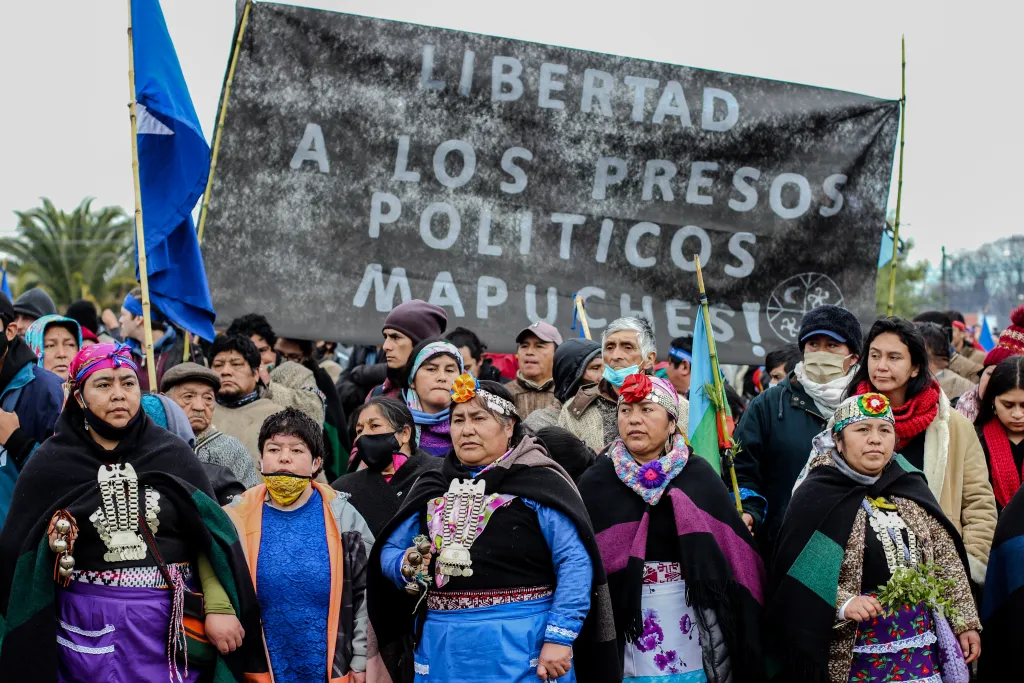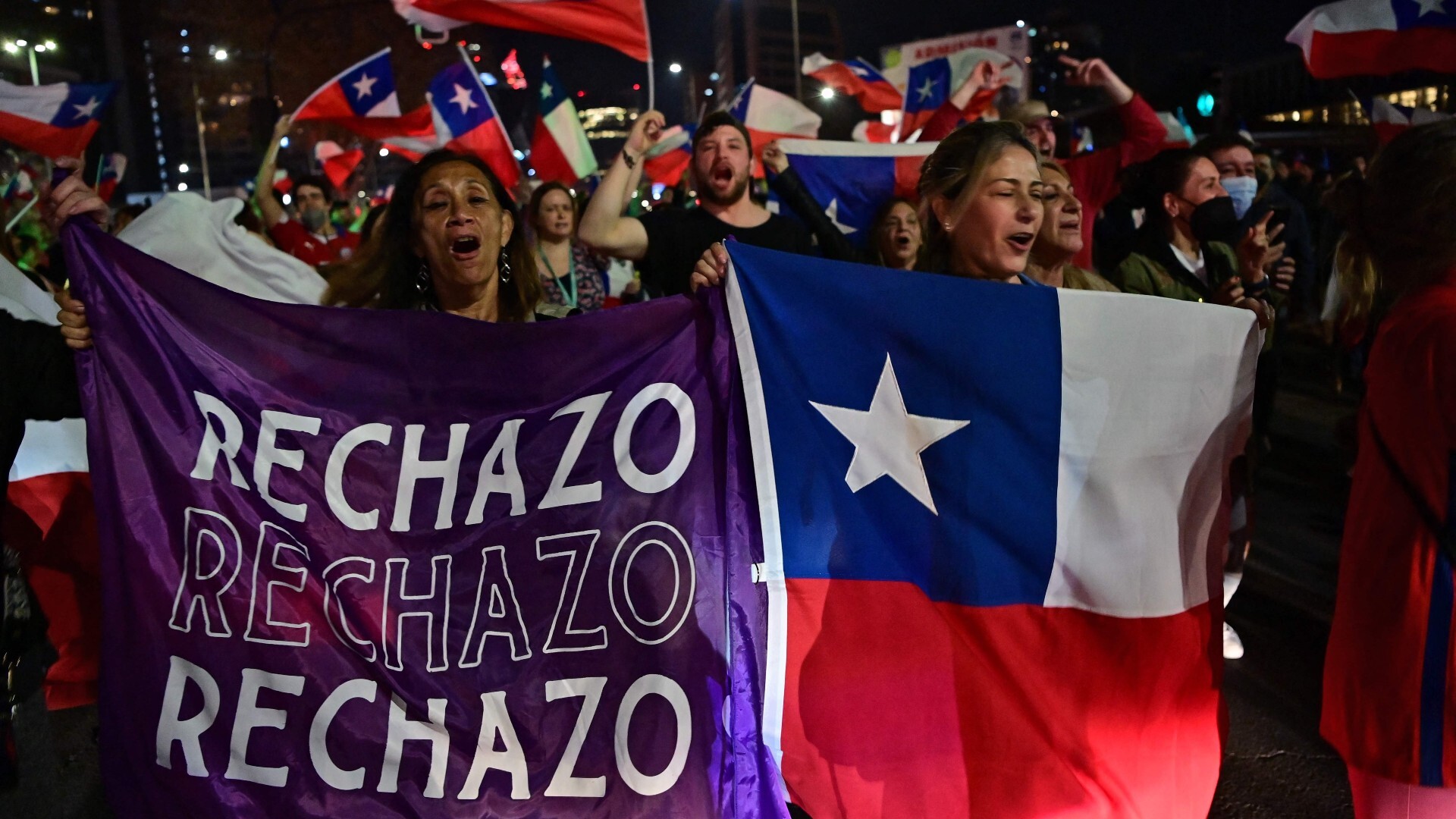The Chilean Constitution, the most feminist in the world, will be voted on September 4
- On 4 September, the new constitution will be voted on in Chile, which is intended to replace the already in force Constitution of the dictator Augusto Pinochet of 1980. If it is approved, it will be the most feminist constitution in the world. What does this Constitution contain? How has it been written and how have feminist candidates been organized for its elaboration? This article presents a tool created by Chilean social agents to understand the contributions of the Constitution to different themes.

How do you write a feminist constitution? At Open Democracy we read the Chilean elaboration. This is the first time that throughout the world the body that drafted the Constitution, known as the "Constituent Convention", has been formed in an equal manner with 155 members elected for this purpose. And in this process, all left and center-left women who are part of this organ (more than 50) have come together in parallel in the space they have called "Feminist Collective." In fact, the feminist collective was launched before the constant organ, as it was articulated through the whatsapp groups that began to be elected to write the constitution.
According to Ingrid Villena, from Constituent People, to Open Democracy, "On Saturdays we have met in the Feminist Collective and have written proposals to take them to the committees in which each participates. This is how we have presented fifteen constitutional initiatives and almost all have been approved".
Contributions of the Feminist Constitution
The first measure proposed by the Feminist Collective and included in the Constitution is the "right to a life free from violence". At the same time, institutional equalization, legalization of abortion and recognition of the contribution of domestic and care tasks have been brought to the Constitution. It also includes the implementation of parity in the judiciary, the incorporation of the gender perspective in justice and the training of officials and workers of the justice system in the gender perspective. According to the United Nations, 36 of the 388 articles of the Chilean constitution refer to feminism.
But the Feminist Collective emphasizes that its impact on the constituent organ has not been limited to issues affecting women and girls, but that they have had a global vision, feminism has been a transversal line and has influenced, among others, issues such as people with disabilities, the health system and social security, the countries of origin, as well as issues such as the decentralization of the State. Bessy Gallardo, from Chile Dignified, said in Open Democracy: "You have to remove the cartoon from feminism that says it's an ideology that speaks only of women. Feminism is much more: it refers to equality between people. The fact that women are basic political subjects of feminism is evident because they are the ones who receive the most violence, inequality and oppression, but can transfer it to other realities, such as the dissidence of the sexual genders. Or belong to the countries of origin and to the girls. Everything outside the patriarchal imaginary is under pressure and oppression must be alleviated. Feminism has opposed these oppression in this organ that has written the constitution."
Instrument for assessing constitutional contributions
It is not easy to read, understand and value the contributions made by a legal text such as the constitution. One tool that contributes to all this is the provision of citizenship by La Constitucion is Our (the Constitution is ours): social agents and experts from the academy have gathered to analyze and value the articles of the constitution, to offer a look outside the constituent organ and the political parties.
In this tool, the citizen can access the articles of the new constitution by areas of interest. Symbols have been added to each of the rules of the Constitution which indicate the scope of each regulation: sustainable social development, Rights of Nature and Human Beings, security, equality, innovation and sustainability, decentralisation, participation and the fight against corruption.

In addition to the searches that the citizen can carry out, there are 96 reviews conducted by experts on specific articles. For example, the evaluation of "recognition of domestic work and care" has been written by Nucleo Tabl-Alberto Hurtado University, as can be read here. It provides access to what the Constitution literally says, in its article 49:
"1. The State recognizes that domestic and care tasks are socially necessary and essential for the maintenance of life and social development. They are an economic activity that affects the country's results and should be taken into account in the approach and implementation of public policies".
2. The State promotes social and gender co-responsibility and will establish mechanisms to redistribute domestic and care tasks, and will ensure that these works do not constitute a disadvantage for those who perform them".
Next, the social worker who values this point of the Constitution answers a number of questions so that the citizen has information about the contribution made by this article of the Constitution:
How important is this article of the Constitution to improve people’s quality of life?
The social agent has given the highest score.
Why does this article matter the score you just gave you?
"The vast majority of women take on the role of care inside the homes, and they take care of the domestic tasks and the growth of children, which deters much of their time, influencing their living conditions and their possibilities of progress. The recognition of this type of work will allow public institutions to invest in services, policies and infrastructures of surveillance and education and to establish active policies for the reconciliation of the family, among other things".
To what extent does the new constitution improve this point compared to the current one?
The social agent has given the highest score.
How does the score given argue?
"Household and care tasks are an important contribution to the economies of countries, as well as to individual and social well-being. On the contrary, these unpaid jobs remain invisible and unrecognised, and are not taken into account when making decisions. This reality can change thanks to this article, which obliges the State to establish policies for the benefit of those who perform these functions".
Is there a similar article in other countries?
Bolivia and the Dominican Republic have recognized unpaid care in their constitutions.
What are the main myths related to this article and why are myths?
They want them to pay for their clean house and bathe the children. I mean, they want to get paid for what they have to do.
Housewives have the reward: Is keeping the house devalued?
"These statements show the interiorization of the sexual division of traditional work, which is obligated for women to perform domestic tasks in exchange for love. This structure has double working hours (whether paid or not) or no access to the labour market, preventing economic independence and hindering the full development of life."
One of the main conflicts of Chilean President Gabriel Boric since the beginning of his mandate has been the conflict in the territory of Araucania in the south. In recent years, the struggle between the Mapuches and the Chilean state, among others, for land ownership has... [+]






















